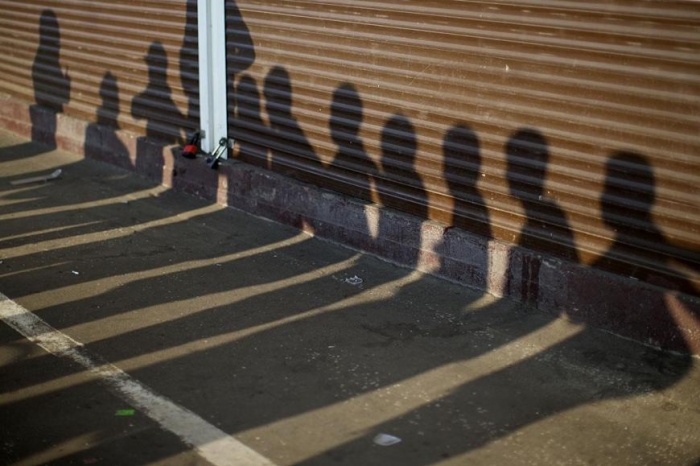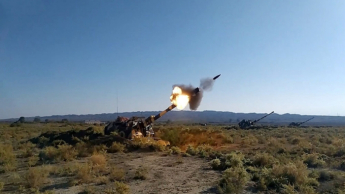Why does Russia not need labor migrants again?

|

Shadows of people detained by Russian police, suspected of violating immigration rules during an action seen on containers at a street market in Moscow, Russia, August 7, 2013. © AP Photo/Alexander Zemlianichenko
The CIS countries must, by June 15, reduce the number of migrants who are "illegally" in Russia. This was stated by First Deputy Minister of Internal Affairs Alexander Gorovoy at a plenary session of the Interparliamentary Assembly of the CIS Member States.
The CIS countries must, by June 15, reduce the number of migrants who are "illegally" in Russia. This was stated by First Deputy Minister of Internal Affairs Alexander Gorovoy at a plenary session of the Interparliamentary Assembly of the CIS Member States.
What is the reason for this decision, why did it arise right now, and do officials in Russia think about the consequences of such a policy, in particular, about the fate of the migrants themselves?
According to the Ministry of Internal Affairs, 247 thousand migrants from Tajikistan, 120 thousand from Azerbaijan, 115 thousand from Kyrgyzstan, 61 thousand from Armenia, 49 thousand from Kazakhstan, etc. are registered in Russia today. And the number of illegal migrants is probably many times higher.
Meanwhile, the measures suddenly announced by the Russian migration services raise a lot of surprise and questions.
Another phrase of a high-ranking Russian official is interesting. “The number of your citizens who are currently on the territory of my country is illegal,” Gorovoy said during the meeting. He also added that if the CIS countries do not reduce this number, then "these people will be punished up to expulsion and closure of borders."
The conclusion suggests itself that we are talking about very harsh consequences for those who do not take into account the decision of the Russian Ministry of Internal Affairs. The question involuntarily arises - why so suddenly and suddenly the Russian authorities decided to take such harsh measures?
In early April, the press secretary of the Russian president, Dmitry Peskov, said that over the past year there were "very few migrants" and "there are very few of them to implement the ambitious construction plans." In addition, according to Peskov, "we need the same workers in agriculture." He associated the reduction in the number of migrants in Russia with the COVID-19 pandemic.
So back in December 2020, the Ministry of Internal Affairs reported that 6.3 million migrants were in Russia. In normal times, their numbers ranged from 9 to 11 million people.
Therefore, another logical question arises - if the number of migrants has become noticeably less than the Russian authorities are so unhappy with, if, according to Peskov's recent statement, “there are not enough migrants”?
One can assume why - obviously, now, in Russia, in connection with the pandemic, there has been a crisis in the construction sector and other, previously actively developing industries. Having carried out an “audit of opportunities” both in the capital and in other cities, the Russian authorities apparently came to the conclusion that the majority of migrants were in the status of unemployed, and this moment already creates problems in the social sphere - what to do and feed so many migrants ...
However, the Russian migration authorities clearly went overboard with fierce rhetoric, not even thinking about the fate, social status of hundreds of thousands of people who decided, like this, to kick them out of the country at one stroke.
But let's remember - for a year, due to the pandemic and the complete cessation of air and road communications with other countries, Russia itself kept all migrants on its territory, automatically renewing their registration in Russia. Other countries did the same. One way or another, tens of thousands of migrants and guest workers from the CIS countries, in view of this, found themselves without work and livelihood on the territory of another state. Many of them did not expect that they would stay so long in Russia.
The Russian media have written about this problem more than once. For example, Gazeta.ru, in its review back in March 2020, reported that temporary detention centers for foreign citizens, where migrants to be expelled from the country are placed, are quickly filled. The court makes a decision to send a person home, but the same state authorities cannot fulfill this decision, since it is impossible to cross the border. People who are ordered to leave the Russian Federation by means of "controlled self-driving" face the same. Sooner or later, the journalists concluded, the places will run out, and foreigners who do not have money to pay for a hotel room will end up on the street.
As noted in the publication, wealthier migrants can support themselves during quarantine, but ordinary people who can now not return home face a lack of money for food and housing.
It is difficult to imagine what kind of ordeals migrants faced during the year, in particular our Azerbaijani compatriots, when they found themselves far away, cut off from home.
Someone found another job, and someone, in general, probably lives at the expense of relatives and friends.
It is clear that the Russian authorities are trying to find a way out of the situation, but one gets the impression that in this case, they think exclusively about themselves and the country's internal problems, completely without thinking about the social state of those whom they themselves have deliberately kept for a year, not giving an opportunity leave their "second home".
So very unpleasant and nondiplomatic are Gorovoy's phrases that the presence of migrants "on the territory of my country is illegal." And it is absolutely rude that "these people will be punished up to the expulsion and closure of the borders." By the way, does he really think that he can find all the guest workers and get them out of the country?
What did the Russian authorities think about before, making such drastic and cardinal decisions now? Based on the statements of the Russian official, it is clear that Russia has clearly not been involved in any attempts to solve or calculate such a situation.
But it seems ill-considered even now - after all, it is quite clear that the pandemic will end sooner or later, and Russia will need unnecessary migrants today again, perhaps very soon. What will then be the rhetoric of Deputy Minister Gorovoy?
Taking into account the history of relations between the Russian Federation and the CIS countries, which were connected very much and are connected now, there is a feeling that in this case Russia acts with representatives of various peoples of these countries who find themselves on its territory, clearly not in a partnership and not in a friendly way ... Looking back at the common historical values and memory of the peoples of the USSR, it is worth noting that if once their parents and grandfathers gave their lives without hesitation in the Great Patriotic War, in the battles for the defense of Russian cities, now, their children and grandchildren were in the role “Unwanted elements” in the same country.
And from a strategic point of view, the rhetoric of the Russian Foreign Ministry does not look very reasonable. Now, in a very tough and difficult time, when Russia, in fact, found itself in a state of cold war with the Western world, perhaps only the countries and peoples of the CIS - those on which Russia could and can always rely. And in doing this, Russia, to a large extent, puts its relations with the closest allies and partners in the post-Soviet space to the test.
The author is the independent political expert
(If you want to contribute and have specific expertise, please contact us at [email protected])
The Rocket and Artillery formations of the Azerbaijan Army conduct live-fire exercises in accordance with the combat training plan for 2021, the Ministry of Defense of Azerbaijan told Baku Tribune.
LAST NEWS






.jpg&h=67&w=67&zc=1&q=100)













